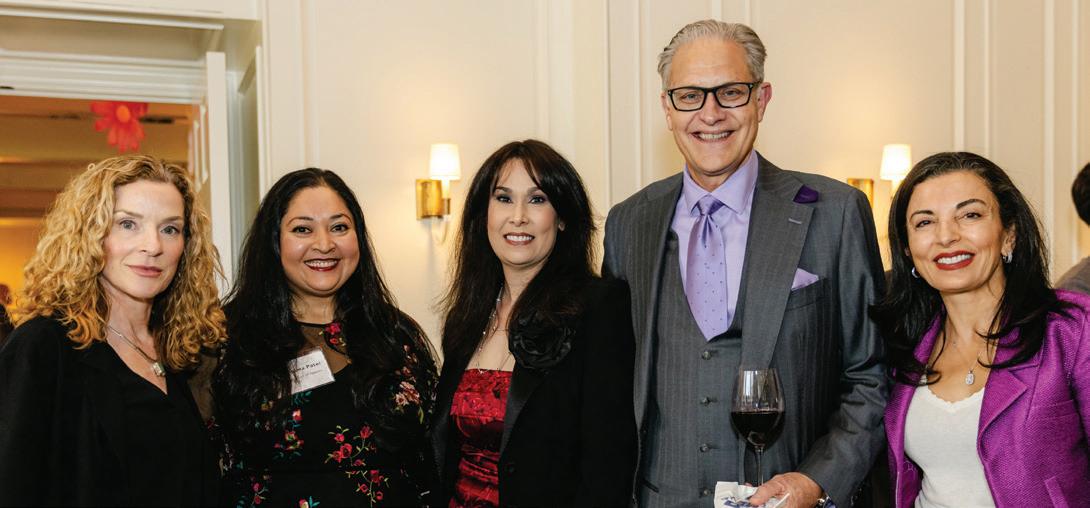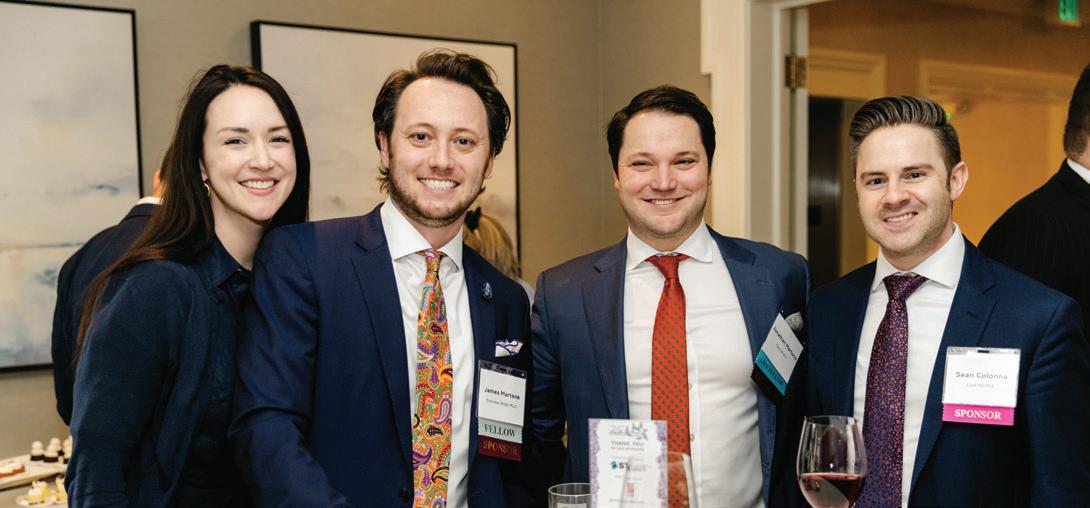


















































OAKLAND COUNTY BAR ASSOCIATION
1760 S. Telegraph Road, Suite 100
Bloomfield Hills, Michigan 48302-0181 (248) 334-3400 • FAX (248) 334-7757 www.ocba.org

PRESIDENT
Dean M. Googasian
PRESIDENT-ELECT
Sarah E. Kuchon
VICE PRESIDENT
Aaron V. Burrell
TREASURER
Kari L. Melkonian
SECRETARY
Victoria B. King
EXECUTIVE DIRECTOR
DIRECTORS
Syeda F. Davidson
Julie L. Kosovec
Emily E. Long
Jennifer L. Lord
Moheeb H. Murray
Kimberley Ann Ward
Kenneth F. Neuman
Layne A. Sakwa
Jonathan B. Frank
Silvia A. Mansoor
Jennifer Quick ABA DELEGATE
LACHES EDITORIAL BOARD
Victoria B. King
Syeda F. Davidson
Coryelle E. Christie
James W. Low
Lanita Carter
Thamara E. Sordo-Vieira
Fahd Haque
THE MISSION OF THE OAKLAND COUNTY BAR ASSOCIATION IS TO SERVE THE PROFESSIONAL NEEDS OF OUR MEMBERS, IMPROVE THE JUSTICE SYSTEM AND ENSURE THE DELIVERY OF QUALITY LEGAL SERVICES TO THE PUBLIC.
Articles and letters that appear in LACHES do not necessarily reflect the official position of the Oakland County Bar Association, and their publication does not constitute an endorsement of views that may be expressed. Readers are invited to address their own comments and opinions to:
LACHES | Oakland County Bar Association 1760 S. Telegraph Rd., Ste. 100 Bloomfield Hills, MI 48302-0181
Publicationandeditingareatthediscretionoftheeditor.
LACHES (ISSN 010765) is the monthly (except July and December) publication of the Oakland County Bar Association, a Michigan nonprofit corporation, 1760 S. Telegraph, Ste. 100, Bloomfield Hills, MI 48302-0181. Copyright © 2024 Oakland County Bar Association. The price of an annual subscription ($20) is included in member dues. Periodical postage paid at Bloomfield Hills, MI 48304 and additional entry offices. Postmaster: Send address changes in writing to Oakland County Bar Association, 1760 S. Telegraph, Ste. 100, Bloomfield Hills, MI 48302-0181.

5 Tips for Effective Utilization of Technology in Your Practice
The ever-changing legal tech landscape can be daunting, but there are plenty of accessible tools
Electronic Filing in District Courts
Zooming Your Way to Success
Following


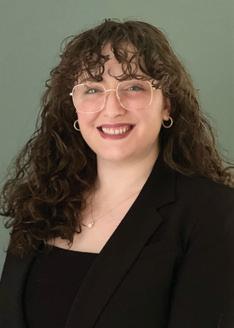

Ours can be a difficult profession. Regardless of the type of law we practice, whether we’re litigators, judges, transactional attorneys, in-house counsel, government lawyers, solos, or in a big firm, there are always stresses. ere is time pressure, the pressure to be responsive, to perform, to achieve results for clients, to make the right judgment calls and the right decisions, to earn a living and advance in our careers. All while living a life outside the courtroom or the office.
Finding healthy ways to cope with those stresses is important. Hobbies can help. Some folks find solace in knitting, or reading, or painting or music. I fish.
My grandfather taught me to fish almost from the time I could walk. I treasure the memories he made with me, whether we were bobber fishing for bluegill in our pond or trolling and casting for walleye and perch in a lake we frequently visited in the remote north woods. Although he passed long ago, the love he gave me of fishing, the care he taught me for the environment, and the respect for the fish we caught continue to this day.
I am passable with spinning gear and mediocre at best with a fly rod, but I still fish and I am still learning. I try to get away for an extended trip at least once each year to get out in nature, far away from people and from cell service, and just fish.
By Dean M. Googasian
A little later, after I misplaced another cast, he asked me whether I liked being a lawyer. I didn’t answer right away. My stock answer to that question is that I love what I do, which is the truth. I represent injured people and their families, and I love and find great purpose in helping them. But that day, despite the setting and being far away from work geographically, I was still feeling the stress of it all, and I took a beat to think before answering. I eventually told the guide that while I love what I do, I was finding it to be very stressful.
He laughed, shook his head, then asked a simple question: “Do you give a crap?” In truth, he used more-colorful language that, because my mother may read this article, is not fit for printing here.

A few years ago we had a preplanned trip that happened to occur while I was in the depths of several cases I found to be particularly stressful. I arranged to go flats fishing for a half-day with a local fishing guide on the island we were visiting. At one point, when he took a break from his pointed — but accurate — criticism of my fly-casting skills, he asked me what I did for a living. I told him I was a lawyer.
Bad language aside, I got the gist of what he was asking. He was asking whether I cared about my work and the work I did for my clients. I told him that I did, that I cared deeply, and his response, before he got back to criticizing another bad fly cast, was simple: “ ere you go. If you give a crap, it’s gonna be stressful.”
I already knew that, of course, but the simplicity of his point helped put things in perspective. In order to do good work, we have to care. If we care, if we care about the quality of the work we do, and the outcomes that we achieve for our clients, our work in the law can be stressful. Finding ways to cope with that stress is good. Fishing continues to be one of my main coping mechanisms. I hope you have hobbies and activities that you enjoy and that help you to cope.
Another of my coping mechanisms over the years has been the OCBA and the camaraderie and relationships that the OCBA has helped me develop. I suspect I’m not alone.
e OCBA provides many opportunities to interact with other lawyers, members of our Paralegal Committee, judges, and others in what we hope is a welcoming and collegial atmosphere that can help take the edge off our
adversarial system. We learn from each other, and about each other, and conversations at meetings and events often focus more on family and friends and other things outside the law that make life worth living. Here, we can interact as colleagues, not opponents.
One excellent example is the OCBA Inns of Court chapter, which exists to bridge the gap between law school and legal practice.
e chapter, this year led by Chancellor and Oakland County Circuit Court Judge Kameshia D. Gant, continues a centuries-old tradition of senior lawyers and judges helping educate newer lawyers on civility and practice skills. e Inns of Court provides tremendous opportunities for newer lawyers to interact with midlevel lawyers and senior lawyers and judges in skills-building exercises.
OCBA practice area committees are another great avenue for collegial interaction. Our practice area committees allow those who practice in a particular area, or simply have an interest in that subject, to meet, to discuss and learn about current issues and developments, and to interact with each other in a nonadversarial setting.
OCBA special purpose committees provide additional opportunities. One example is the OCBA’s Lawyers of a Certain Age (LOCA) Committee, currently chaired by the inimitable Judy Cunningham, which exists to serve the needs of OCBA members age 62 and older and for LOCA members to aid new lawyers with skills and mentorship. LOCA is active, fun, and a tremendous resource for its members and those they mentor.
Opportunities abound within the OCBA to meet with colleagues, to learn, and to take the edge off the everyday stresses the practice of law can generate. I encourage you to get involved in the OCBA, and to take up fishing, or knitting, or reading, or whatever peaceful distraction calls your name.

Dean M. Googasian is the president of the Oakland County Bar Association.

Patent, Trademark, Copyright and Trade Secret Litigation

Business and Complex Contract Litigation
Litigation Ready in all 50 States
*with local counsel, if necessary
Contigency, Fixed and Hybrid Fee Arrangements Available
PARTNERSHIPS AND REFERRAL ARRANGEMENTS WITH OTHER LAW FIRMS ENCOURAGED
By Jennifer Quick

As is tradition, I would like to use my August column to provide our members with an update on the state of the bar and a summary of the 2023-24 bar year. Because this issue focuses on technology, I was going to engage the services of ChatGPT to help compose this article, but unfortunately, ChatGPT is currently experiencing an outage. Perhaps that is lesson 1 in using technology … have a backup plan.
By most accounts, 2023-24 was extremely successful. From our annual Holiday Gala to the biennial District Court Bench/Bar
Conference to the celebratory Annual Meeting & Awards Ceremony, it is always wonderful to experience the high level of energy and excitement felt among our members as they catch up, form new relationships, and enjoy the company of their colleagues.
Our committees continued to meet mostly virtually, but many mixed in a few in-person meetings in order to provide the face-to-face interaction that is so critical in forming relationships. Our committees produced substantive meetings, dynamic and timely seminars, and impactful public service programs, from
our annual Youth Law Conference to adopting families for the holidays to assisting veterans.
From an organizational standpoint, the OCBA had an extremely busy year. We continued to implement items identified in our 2021 and 2022 strategic plans. One of the OCBA’s priorities identified in the plans was to develop new opportunities for new lawyers to receive training just after law school. ose who practiced law before 2020 reminisce about sitting in various courtrooms at the Oakland County Courthouse to observe motion calls. is allowed them to witness best practices,
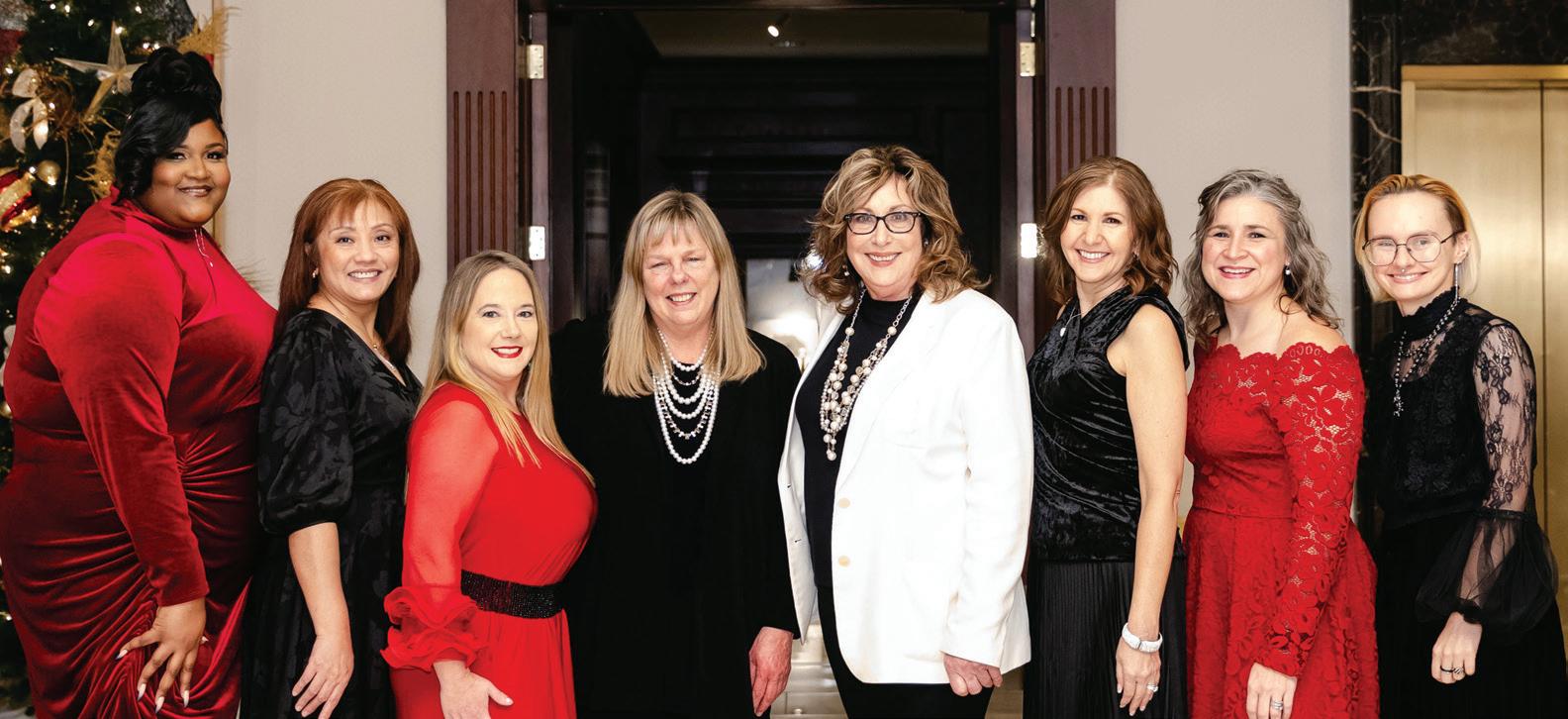




get a feel for a certain judge’s preferences and protocols (and perhaps their mood that day), and learn what not to do. With most motion call hearings taking place virtually, attorneys sworn in since the pandemic have missed out on a key opportunity for learning.
To that end, the OCBA collaborated with several judges from the Oakland County Circuit and Probate courts to develop a oneday New Lawyer Boot Camp. On Friday, May 3, 95 newer attorneys filled the jury assembly room to learn from judges, court staff, and seasoned attorneys on topics such as professionalism, how to make an argument, motion call best practices, e-filing, and so much more. In the afternoon, attendees split off into breakout sessions focusing on the various courts — business, civil, criminal, family, and probate. Feedback from the event was extremely positive, and we plan to host the event annually.
On the membership front, we did not add as many new members as we had hoped, but as of this writing, 260 legal professionals either joined the OCBA for the first time or returned to the OCBA after a lapse in membership since July 1, 2023. Fortunately, our membership retention rate was higher than it has been in years at nearly 87%. is has allowed the OCBA to remain over 2,500 members strong.
Financially, the OCBA continues to be challenged by the major loss of income from the diminished number of cases being sent to District Court Case Evaluation. We have been able to offset this loss by increasing revenue in other areas, cutting expenses, and eliminating staff head count through attrition. Additionally, the OCBA board formed an Investment Oversight Committee that met several times to review the OCBA’s finances, assess its reserves, and recommend a plan to better invest the OCBA’s reserves while avoiding risk. While the OCBA’s profit and loss statements will show a loss for the year, approximately $45,000 of the expenses shown on the P&L is
for depreciation.
Finally, in response to the changes in case evaluation and to needs expressed by the judges of the district courts and several of our members, the OCBA has been developing a new mediation service. A draft of the plan was revealed at the District Court Bench/Bar Conference, and we continue to work toward its implementation. I will share more about it in some upcoming articles.
None of the above would have been possible without the guidance and hard work of the OCBA’s executive board, board of directors, and committee chairs and vice chairs under the leadership of President Melinda Deel. I am grateful for Melinda’s strong leadership and steadfast commitment to the organization. I am truly going to miss working with Melinda.
While I’m grateful to our OCBA board and committee leaders for their support, ingenuity, and contributions, none of these things would have been accomplished without the OCBA’s hardworking and dedicated staff. e staff experienced many changes this year, and most of the staff members had to take on new responsibilities. ey’ve all risen to the challenges of the year, and I know they will continue to do so as we enter 2024-25.
ank you, Katie, Sue, Mayly, Kari, Lori, Janise, Shanay, and MB!
As we head into 2024-25, our attention turns back to growing membership. But we cannot do that without your help. Most people join their local bar association because someone invited them or encouraged them to do so. We hope that the quality of our events, committees, programs, and services has provided enough value to you and your career that you want to spread the word. But just in case you need a little extra incentive, I’d like to announce the OCBA’s 2024-25 referral reward program as outlined below.















Please Note: Dates listed below were sent to the publisher on June 3, 2024. It is possible that some of the events listed below have since been altered. Please check ocba.org/events for the most up-to-date schedule of events.
Join us at Steven Lelli’s Inn on the Green from 5:30 to 7:30 p.m. for another great opportunity to mix and mingle with fellow bar members while enjoying appetizers and a cash bar. This event is free for OCBA members and space is limited, so register today at ocba.org/events

Want to get more out of your OCBA membership? Hoping to expand your professional network? Then join us at 8:30 a.m. at the OCBA, and our staff will show you how to get the most value for your money and how your membership can help you grow professionally. Plus, we leave plenty of time to meet and network with your fellow members. RSVP at ocba.org/events
Our bench/bar brown-bag luncheon series continues virtually via Zoom and will feature an opportunity to meet newly appointed 52-3 District Court judge Hon. Laura Polizzi. Judge Polizzi will share her tips and preferred protocols for practicing in her courtroom. Bring your questions and join us for an informal discussion of legal topics and practice issues. Space is limited, so register today at ocba.org/events.
OCBA Sustaining Members are cordially invited to this special event to honor and show appreciation for the dedication and commitment of our Sustaining Member supporters. This reception is invitation only and free to Sustaining Members. To learn more about the Sustaining Member program, visit ocba.org/sustaining or contact Katie Tillinger at ktillinger@ocba.org
Voting for a judge to rule on cases and issue judgments should be an informed decision. To help with that decision, the OCBA is partnering with the League of Women Voters of Oakland Area, the Oakland County Legal News, and the Oakland County Times to host Judicial Candidate Forums for all judicial races in Oakland County where there are contested seats. The schedule of upcoming forums in September is below. All forums begin at 7 p.m. Information on the various forums and candidates can be found at ocba.org/judicial_candidates




20 The Nuts and Bolts of Mental Health Treatment Court (Noon – 1 p.m.)
A seminar for criminal defense appointed counsel
Presenters: Hon. Jaimie Powell Horowitz, Esq., 45th District Court; Heather Ruffles, Chief Probation
Officer and Specialty Court Coordinator, 45th District Court; John S. Angott, Esq., The Legal Pugilists; and Jillian Cantrell, One Step at a Time Counseling Services Inc.
Moderator: Michael E. Sawicky, Esq., Michael E. Sawicky, P.L.L.C.
This Zoom seminar will define and express the importance of mental health treatment court. Statistics will be showcased, and a Q&A will follow.
Worth 1 hour of criminal and juvenile training credit for appointed counsel
17 MRE Chapter 7, Experts and Investigators (5:30 – 7:30 p.m.)
A seminar for criminal defense appointed counsel
Presenter: Michael J. McCarthy, Esq., Michael J. McCarthy, P.C.
This dynamic in-person seminar will highlight MRE Chapter 7 and list the strategies for hiring experts and investigators.
Worth 2 hours of criminal and juvenile training credit for appointed counsel
10 Update on the State of Juvenile Law 2024 (11:30 a.m. – 1 p.m.)
A seminar for criminal and juvenile defense appointed counsel
Presenter: H. Elliot Parnes, Esq., H. Elliot Parnes, PLLC
This Zoom seminar will review developments in juvenile law, including new legislation, court rules, and case law from the past year.
Worth 1.5 hours of criminal and juvenile training credit for appointed counsel
15 Arraignments and Other Issues: The Magistrate’s Perspective (Noon – 1 p.m.)
A seminar for criminal defense appointed counsel
Presenters: Magistrate Michael E. Sawicky, 47th District Court; Magistrate Marie Soma, 52-3 District Court; Magistrate Michael Bosnic, 52-1 District Court; and Magistrate Elizabeth C. Chiappelli, 52-4
District Court
Moderator: J. Randall Secontine, Esq., Law Office of J. Randall Secontine
This Zoom seminar will review arraignments, small-claims hearings, informal hearings, and bond setting. Come hear the magistrate’s perspective to better prepare for court.


Sam Morgan & Greg Jones have a team of Employment Lawyers with decades of experience providing advice, counsel and representation to Employees and Employers in a wide variety of occupations, for:
• Wrongful discharge cases, including breach of employment contract, discrimination, harassment and retaliation
• Non-payment of compensation disputes, including commission, bonus and incentive compensation arrangements, and FLSA violations
Enforcement of equity award agreements and minority shareholder rights
Defending against mobility-killing non-compete and non-solicitation contracts
Separation agreement reviews and severance negotiations
• Drafting employment contracts
• HR counseling, defending against government investigations






Our team includes Senior Associate, Barbara Urlaub*, and Of counsel attorneys, David Kotzian*, Donald Gasiorek*, Raymond Carey *, and Paul Hines *2023 Michigan Super Lawyers Honorees Toll
Locations: Farmington Hills, Sterling Heights, Downriver www.work-lawyers.com
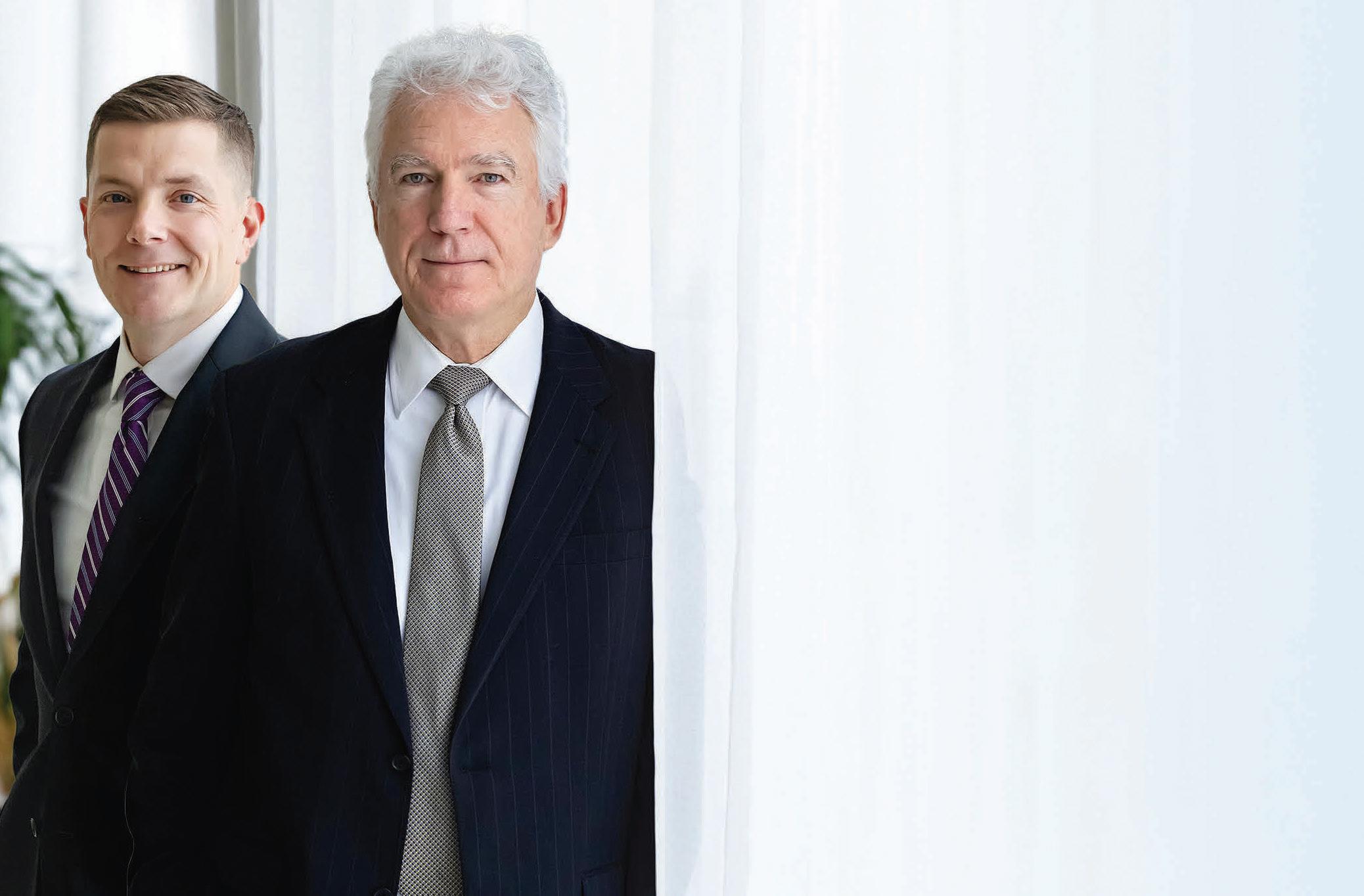











Practice
By Jordan S. Bolton and James L. Kresta
Benjamin Franklin once said, “Nothing can be said to be certain, except death and taxes.” In 2024, I think we can confidently add “technological advances” to Mr. Franklin’s list of unavoidable realities. If you have practiced law for more than 40 years, you may remember when “cut and paste” meant physically cutting paper and actually pasting it. More than 30 years, and you probably recall checking the fax machine as you entered your office (Tab soda in hand) to see if any messages had arrived while you were away. Twenty years, and you likely reminisce fondly about the days when a dozen emails in a single day was a lot. More than 10 years, and you lament getting copies of your filings printed, organized, and in suitable hands for in-person filing and service. More than five years, and you recall the days when nobody even considered conducting a substantive hearing or trial anywhere outside a courtroom. The point is, with each passing year, technological “advances” have changed and will continue to change the way we serve our clients and communities.
The ever-changing legal tech landscape can be daunting, and expensive, but even if you’re on a budget, there are plenty of accessible technologies that can aid your practice. While this list is far from comprehensive, here are some tips and tricks for effectively utilizing available technology in your practice.
No. 1: There Is More to Understanding Videoconferencing Than Knowing How to Use the Mute Button
More than four years after the start of the COVID-19 pandemic, most of you have the basics of videoconferencing well in hand. But for those still struggling (we still see you out there from time to time), here are a few tips:
(i) Your default position should be “mute” — the only time to unmute yourself is right before speaking.
(ii) Make sure your background (virtual or otherwise), attire, and screen name are suitable for the occasion — even cat lovers can agree that appearing on Zoom as a cat is a bridge too far, and dare we forget the Michigan defendant who appeared on Zoom with a particularly profane screen name?
(iii) Be at a desk whenever possible — sitting in your car while on a hearing signals a lack of seriousness and preparedness.
(iv) Do what you can to mitigate the risk of unexpected interruptions (e.g., co-workers, pets, children, and even spouses).
(v) If your computer’s camera, microphone, or speakers are suboptimal, consider investing in an external setup (you would be surprised how far $100 can go in this regard).
Now, for those of you beyond the basics, here are a few (slightly) more advanced tips that you should consider:
(i) When presenting (e.g., during oral argument or while leading a meeting), consider changing the view to “Speaker View,” shrinking the videoconferencing screen, and centering it in the top of your monitor directly under your camera. With this setup, your eyes are drawn to the camera, and it gives the appearance of making eye contact with the viewers.
(ii) Advanced versions of Zoom and some other videoconferencing platforms can detect hand signals without the need to click a button (e.g., raise your hand and the hand raise icon will pop).
(iii) When selecting attire, choose solid colors (specifically those that contrast with
the background) and avoid busy prints, checkers, stripes, or plaids.
(iv) For those wearing accessories, vivid colors are best (e.g., sapphire blue, emerald green, and amethyst purple), and you should avoid accessories that make noise and pull microphone focus.
(v) Make sure to mute your other devices and silence your computer’s notifications, so as not to be the cause of needless distraction during the meeting/proceeding.
(vi) ere is no substitute for hopping on a few minutes before your scheduled time to make certain everything is in order.
No. 2: Use the Dictation Tool in Microsoft Word Gone are the days (or at least they should be) of your legal secretary sitting in your office furiously writing shorthand as you wax poetic about some nuanced provision of law — all too often resulting in your assistant simply returning the writing to you for a dose of the red pen. Instead, now when you need to type a large amount of text, whether it be a long contract term or a block quote that cannot be copied and pasted, consider using the dictation tool built into Microsoft Word. If you are in Word, there is a microphone icon on the toolbar at the top of your screen (usually under the “Home” tab). Click the icon and simply recite your thoughts, or read the provision or quote out loud, and it will appear on the page. Microsoft’s dictation software is surprisingly accurate and can obviously save time — and, if you are copying something down, it can save your neck from the whiplash caused by looking back and forth from the document to your monitor.
No. 3: Create Timelines in Microsoft Excel
At the start of many engagements, it is best practice to compile a timeline of important events. And while there are plenty of pricey and shiny timeline programs one can purchase (and, no, Microsoft is not sponsoring this article), it is hard to beat the simplicity and accessibility of good ole Microsoft Excel. Not only is an Excel timeline a valuable tool to reference and update throughout the case, but just by creating the timeline and going through the exercise of organizing the relevant dates, you will uncover aspects of your case that you may have otherwise missed.
No. 4: With Moderation, AI Can Be a Resource
(It May Have Even Written is Article … But We Promise It Did Not)
You may be sick of hearing about it, but no 2024 article discussing technology would be complete

without a nod to artificial intelligence. By now, most have probably heard of an attorney or two using ChatGPT to draft a brief only to learn the hard way (i.e., being called to defend a sanctions motion) that as magical as AI is, it is not infallible — and has a tendency to make up case law that does not exist. While you still must do your own research and (mercifully) there is not currently any substitute for the legal skills of a licensed attorney, AI can indeed be a useful tool if used appropriately.
While using AI to draft a complete brief remains ill-advised — and potential malpractice — perhaps its greatest value is as a brainstorming tool. Consider using AI for drafting creative discovery requests, or even to help identify potential causes of actions and defenses. It can also be used to give some alternative styles to convey an idea. e same way that a thesaurus or dictionary can help you come up with a more accurate word, AI can give alternative ways to articulate an idea. e final advice on AI is that, as with most things in life, the key is moderation. It is not a substitute for hard work and thoughtful analysis, but if used sparingly, it may help come up with some new ideas.
No. 5: ere’s an App for at Some of you have already adopted some application for recording time when away from the desk, and, let’s be honest, most of you have certainly downloaded at least one game or social media application to pass the time. e mobile applications available to lawyers do not, however, stop with those omnipresent options. Here are some helpful applications you may want to consider:
(i) LawStack — A free application for iOS and Android that permits downloads of the U.S. Code, the Code of Federal Regulations, and various state regulations to your mobile device. Once downloaded, they can be referenced without an internet connection.
(ii) Evernote — With free and paid options available, Evernote lets you organize
notes, files, voice memoranda, and task lists in folders.
(iii) Penultimate (iOS)/Squid (Android) — A free application for those who prefer to jot down handwritten notes instead of typing.
(iv) Adobe Scan — With paid and free options, this application allows you to take a picture of a document and immediately convert it to a PDF. It’s far preferable to snapping a photo of a document and sending it as a JPEG.
Regardless of where you are in your career, technological evolutions are impacting your practice every day. For some, that evolution is welcome — for others, it’s panic inducing. No matter your feelings on the topic, hopefully this article has alerted you to at least one way technology can help your law practice.

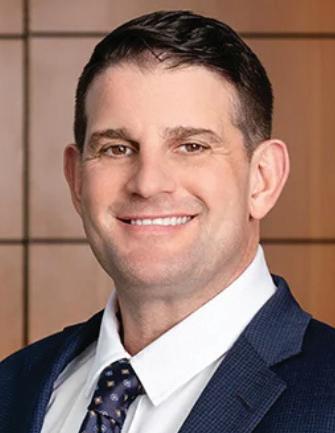
Jordan S. Bolton is a partner with Taft. Consistently recognized in Best Lawyers, Super Lawyers (top 50 in business and top 100 in any practice), DBusiness’s Top Lawyers, and elsewhere, Bolton maintains a national commercial litigation, neutral, and outside general counsel practice. Bolton has given decades of service to the OCBA, the State Bar of Michigan, and other bar associations and community organizations, including as a founder of the OCBA’s Business Court and Counsel Committee, an OCBF Life Fellow, a discovery mediator, and a State Bar of Michigan Judicial Quali cations Committee member. JBolton@TaftLaw.com.
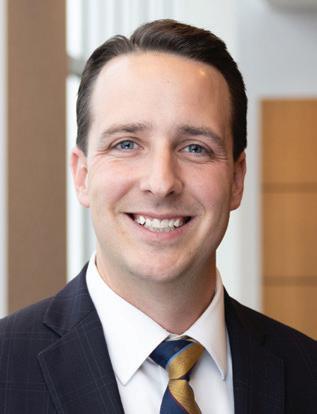
James L. Kresta is a partner with Taft. Recently recognized as a 2024 Michigan Lawyers Weekly “Up & Coming Lawyer” and 2024 Best Lawyers “One to Watch” and consistently named a Super Lawyers “Rising Star,” Kresta maintains a national commercial litigation practice. Kresta is a member of both the OCBA and the Washtenaw County Bar Association. He is actively involved in pro bono work and has been recognized as a member of Taft’s Pro Bono Honor Roll. Outside the legal arena, Kresta sits on the board of directors for the Patriot Week Foundation and Father Gabriel Richard High School in Ann Arbor. JKresta@TaftLaw.com.

By Jennifer Phillips
Don’t panic. Expect to be a little confused at first.” I was given a Post-it note with these words written on it when I asked our judges and staff in the 52nd District Court for feedback to provide to attorneys and other courts regarding our experience with implementing MiFILE, the state’s electronic filing system. In thinking about it, I believe this is some of the best advice we can provide. Although Oakland County Circuit Court has been live with electronic filing since 2007, and Macomb Circuit and Wayne Circuit flipped the switch years ago, until November and December of 2023, the 52nd District Court had remained totally dependent on traditional paper systems without electronic case management. Fortunately, we were not the first district court to go live. We followed in the pioneering footsteps of the 37th District Court (Warren), 40th (St. Clair Shores), 41B (Clinton Township), and 51st (Waterford), in addition to several courts across the state that went live in round 2 of the state’s rollout. However, this was, and still is, a substantial transition and adjustment for our court even if some of it is second nature to many attorneys in the legal community at this point.
All four divisions of the 52nd District Court began training for the transition in April of 2023. e divisions 52-1 (Novi) and 52-2 (Clarkston) went live on November 28, 2023, and 52-3 (Rochester) and 52-4 (Troy) launched on December 5. Since our go-live dates, all litigants and attorneys submitting civil filings with the 52nd District Court are required to e-file as mandated by Michigan Court Rule 1.109(G)(3)(f).
All filers must set up a MiFILE account to submit documents to the court. is is done by going to the MiFILE website and clicking “Sign Up” in the upper right corner. Creating an account is free. You will only be charged when you submit filings that require filing fees. When signing up for a new account, attorneys will need to use the same email address that they registered with the State Bar of Michigan. e court’s transition to MiFILE requires the Service Recipient list for each case in MiFILE to be populated one time from the party and attorney information maintained in the court’s case management system. In most instances, the attorney email addresses in the case management system will have originated from a file maintained by the State Bar. e following MiFILE tutorial is helpful if you have questions: “MiFILE Tutorial — How to Register for a New Account,” youtube.com/ watch?v=A34WAl476gE
One thing that the court and many attorneys have noticed is that even though courts across the state are all going live on the MiFILE system, there are still some subtle differences in the platforms between the courts that converted from existing systems and those that are going live on MiFILE now. Courts going live now are on the “standard solution,” which is the name of the current MiFILE platform. It is our understanding that all MiFILE courts will eventually be on the standard solution, but there will be some variation in functionality among courts until that happens. is is something the courts cannot change or control. One of the primary differences is in how
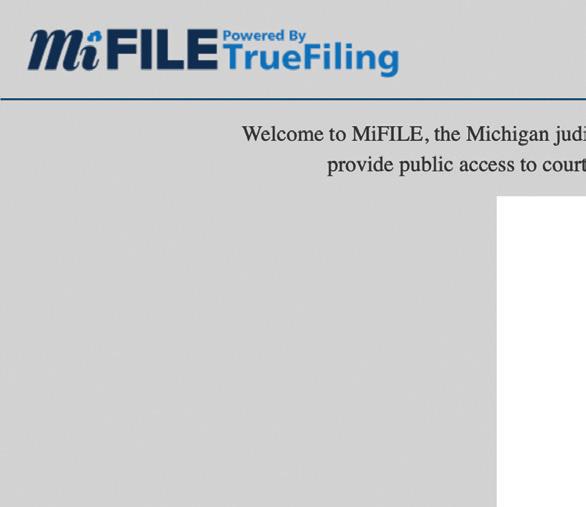
attorneys access pleadings and receive notifications in MiFILE. e notifications are specific to the attorney in the standard solution. It is recommended that each member of an attorney’s legal support staff also create a MiFILE account. ere is functionality within MiFILE that allows users to build a network of attorneys and legal support staff in the same law firm. is functionality is called Connections. Only an attorney may initiate a Connection Request with another user, but any user can receive a Connection Request from an attorney. e MiFILE team recommends attorneys not send Connection Requests to clients since it would give access to the attorney’s payment information. When a Connection Request is accepted, both connected users can file on each other’s behalf, share payment information, and access each other’s filing histories.
With the implementation of MiFILE, the way in which attorneys receive service has changed from paper forms to e-service. Service Recipients are individuals who have a legal interest in a given case. Any MiFILE user can request to add themselves as a Service Recipient if they have a legal interest in the case and are filing a document in support of the request. Examples are an attorney’s appearance, a motion to intervene, a third-party complaint, an acceptance of trust, or a request for service as a person interested in the case through court-ordered appointment (such as a receiver).
Please note that legal support sta for an attorney are not Service Recipients and do not have a legal interest in the case, even if they are connected users. To ensure that legal support staff are timely notified of e-served documents, there is a feature that allows attorneys to “copy e-service” to any of their MiFILE Connections. is means that any time another user e-serves the attorney or the court e-notices a document through MiFILE, the attorney’s connections will also get a copy of that e-served document.


Please see the following MiFILE tutorial for more information: “MiFILE Tutorial — How to Choose Notification Settings,” youtube.com/ watch?v=fII-GrfCbT8
e 52nd District Court has kiosks set up in all four divisions for anyone who does not have the resources needed to file electronically. e kiosks include a scanner and access to the MiFILE system. e kiosks are mainly used by pro se litigants, but attorneys are welcome to use them as well. e experience is a little different in district court than it is in circuit court. District courts tend to have a higher volume of pro se litigants with cases that involve only a few filings — for example, a landlord-tenant case versus a divorce. is means our clerks encounter new pro se filers on almost a daily basis who may only need to file one responsive pleading. Although I am biased, I would have to say that our clerks have been going above and beyond to assist filers with the new process and technology. ey have taken both their technical skills and customer service skills to a new level.
I reached out to Judicial Information Services (JIS) at the Michigan Supreme Court to ask how far they are in the implementation process statewide and how soon other courts are expected to go live. I received the following response:
“JIS is excited to share that over 50 courts have been implemented on MiFILE, marking a significant step in modernizing court operations. With another dozen courts (districts and probates) preparing for launch in midsummer and an additional 30 in line for implementation in the fourth quarter, JIS is making substantial strides in digital integration. We will begin working with circuit courts at the end of this year. As we continue to work on the development of criminal case types, we remain dedicated to thoughtful integration to improve efficiencies across the judicial process. While this transition presents both excitement and challenges, the feedback from stakeholders has been largely positive, highlighting the collaborative efforts of JIS’s experienced court and IT professionals. rough partnerships with Michigan Legal Help and the filing community, JIS is continually refining its e-filing systems to enhance the user experience for both filers and court users.”
It is our understanding that MiFILE will also roll out traffic and criminal electronic filing for the district courts in the next few years, but there is not a specific plan or timetable for the 52nd District Court at this time.

When I spoke to our judges and court staff regarding recommendations for filers, the things they wanted to share included the following:
• Please be mindful when altering State Court Administrative Office forms. When you alter the forms, they sometimes do not convert well in the e-filing process and become unreadable. e clerks will contact you if this happens.
• e district courts will no longer have any part in process serving. For example, we will not accept the filings or pass them on to a process server. Please see our website for process server options and information.
• As noted previously, some courts are on the MiFILE standard solution, and some are not. ere will be slight differences in the systems. is is not something the court can change or control.
• Outside of the system limitations, we are open to feedback and suggestions for improvement.
• Most important, one clerk asked for you to “please pack your patience.” is is a brandnew process for the court and judges.
• Last but not least, we are in this together and hope to make this the best experience for everyone.
For the courts that have not gone live yet, there are some things you can do now to start preparing. You will receive direction from the MiFILE team throughout the onboarding process, and they will keep you on track. We would also recommend the following:
• Based on the specifications provided by the state, start getting the necessary equipment ordered and in place. We would recommend laptops and dual monitors for all staff involved in the e-filing process.
• For the judges, view the courtroom and chambers setups of other judges who have already gone live on the system. We would not recommend that you make any struc-
tural changes to desks, benches, etc., until the judges have had the opportunity to actually work with the system, but it is likely that the judges will need dual monitors in addition to a laptop monitor. How the monitors are placed, how to set up monitor stands and arms, etc., might be better decisions to make after using the system.
• Prepare to have a self-serve kiosk for filers if you do not have a public terminal already. You will need a computer, scanner, and monitor. We set up our system at the counter with one public-facing monitor and one monitor facing the clerks, which allows the clerks to see what the filer is doing and help talk them through the process.
• ink about how you want to transition from paper to electronic files. e MiFILE team will talk you through your options. On the advice of other courts, we chose to have all files before our go-live date remain paper and all files after the go-live date become electronic. All files are either completely paper or completely electronic — there are no files that are both. (Please note that this does not change that all lers must le electronically after go-live. It just impacts whether the staff prints anything once the electronic filings are submitted.)
• Visit other courts to see how everything works once it is up and running. We would recommend you do this after you have completed the MiFILE training modules to provide more context for what you are viewing.
• Include as many court staff members in the initial training as possible. It will take a lot of staff time to all go through the training, but it will be worth it.
• Expect some level of uncertainty and discomfort.
• You will likely not feel ready to launch on your go-live date, but you are. Unfortunately, you need to get into the system and start processing actual cases before you start to feel comfortable with the MiFILE system. is applies to both judges and staff. You will be learning and making adjustments well after implementation.
• Jim McGrail, Region 6 administrator for the State Court Administrative Office, is an excellent resource. He was the court administrator for the 41B District Court when it
went live on the system, and he has extensive knowledge regarding how the system works. He was extremely helpful to our court when we went live and is an excellent resource for all Region 6 (Oakland, Macomb, Lapeer, and St. Clair) courts.
Judge Maureen McGinnis, chief judge pro tempore of the 52nd District Court, offered the following thoughts: “As far as e-filing goes, I think it may help to calm the anxiety of the judges out there that they should consider starting slowly using the way we transitioned from paper files to electronic files, which added in some time before we were working with 100% electronic files. I have found that to be extremely helpful. Also, there is no amount of training that compares to just getting in the system and working with it, so people should not feel like they have to understand every aspect of the system to start up their pilot program.”
Further, Chief Judge Travis Reeds stated, “ is has been a big adjustment for our judges and staff, but we are learning new tips and tricks every day. Make sure you take advantage of all of the training that is offered both before and after your go-live date. You will understand the system more once you are live and have the ability to manipulate your actual cases. If you take the time to learn the functionality in OnBase, it will make working in MiFILE so much easier.”
e final piece of advice from our staff to courts getting ready for implementation is to take good notes and work as a team. To both filers and courts coming online, they promise you will be experts in no time. However, no matter what: “Don’t panic. Expect to be a little confused at first.” We are all in this together.


Jennifer Phillips joined the 52-4 District Court as court administrator in 2022. Before coming to 52-4, she served in administrative positions for the 52-3 District Court in Rochester, the 51st District Court in Waterford, the Macomb County Circuit and Probate courts, and the Michigan Supreme Court. Phillips earned a Master of Public Administration and a Bachelor of Arts in psychology from Oakland University. In addition, she has a Fellowship in court administration from the National Center for State Courts, paralegal certi cation, and Society for Human Resource Management senior certi ed professional certi cation. She also serves as adjunct faculty for Oakland University, where she teaches Advanced Topics in Court Administration in the MPA program.






S ER VING H EALTHCA RE PR OV ID ERS FOR OVE R 30 Y EARS
Wachler & Associates represents healthcare providers, suppliers, and other entities and individuals in Michigan and nationwide in all areas of health law including, but not limited to:
•Healthcare Corporate and Transactional Matters, including Contracts, Corporate For mation, Mergers, Sales/Acquisitions, and Joint Ventures
•Healthcare Corporate and Transactional Matters, including Contracts, Corporate For mation, Mergers, Sales/Acquisitions, and Joint Ventures
•Medicare, Medicaid, and Other Third-Party Payor Audits and Claim Denials
•Medicare, Medicaid, and Other Third-Party Payor Audits and Claim Denials
•Licensure, Staff Privilege, and Credentialing Matters
•Provider Contracts
•Licensure, Staff Privilege, and Credentialing Matters
•Billing and Reimbursement Issues
•Provider Contracts
•Billing and Reimbursement Issues
•Stark Law, Anti-Kickback Statute (AKS), and Fraud & Abuse Law Compliance
•Physician and Physician Group Issues
•Stark Law, Anti-Kickback Statute (AKS), and Fraud & Abuse Law Compliance
• Regulatory Compliance
•Physician and Physician Group Issues
•Corporate Practice of Medicine Issues
• Regulatory Compliance
•Provider Participation/Ter mination Matters
•Corporate Practice of Medicine Issues
•Provider Participation/Ter mination Matters
• Healthcare Litigation
• Healthcare Investigations
• Healthcare Litigation
•Civil and Criminal Healthcare Fraud
• Healthcare Investigations
•Civil and Criminal Healthcare Fraud
•Medicare and Medicaid Suspensions, Revocations, and Exclusions
•Medicare and Medicaid Suspensions, Revocations, and Exclusions
•HIPAA, HITECH, 42 CFR Part 2, and Other Privacy Law Compliance
•HIPAA, HITECH, 42 CFR Part 2, and Other Privacy Law Compliance
S ER VING H EALTHCA RE PR OV ID ERS FOR OVE R 30 Y EARS
S ER VING H EALTHCA RE PR OV ID ERS FOR OVE R 30 Y EARS


By Ryan Deel
Ihave served as the judicial staff attorney for Oakland County Chief Judge Linda Hallmark since 2006. I will never forget March 2020. No one knew it at the time, but the COVID-19 pandemic was about to change the practice of law as we knew it. I was issued a laptop computer and cellphone from Oakland County and sent home. Shortly thereafter, our office was issued passwords for a videoconferencing software known as Zoom, and administrative orders were put in place by the Michigan Supreme Court allowing virtual hearings. This was my first introduction to Zoom and conducting court hearings online. In April 2020, about two weeks after we were sent home, Judge Hallmark began conducting hearings over Zoom. She has been conducting hearings over Zoom ever since.
On July 15, 2020, I started tracking our docket in a spreadsheet to help our office coordinate duties while remote and made it accessible to the entire office.1 Since then, Judge Hallmark has conducted over 6,400 hearings by Zoom, excluding mental health calls. Other than during extreme illness or vacations, I have participated in all those hearings. It is safe to say that I have learned a thing or two, and I’m happy to share some tips that I have learned along the way about how to have success in your Zoom hearings.
The use of videoconferencing to conduct court hearings may be the biggest change to the judicial system since judges stopped wearing wigs, and it is here to stay. It also represents a profound change in how cases are argued. Effective September 9, 2022, the Michigan Supreme Court adopted amendments to Rules 2.402, 3.210, 4.101, 5.140, and 6.001 and added Rule 2.408 of the Michigan Court Rules to address videoconferencing in various hearings. While there are many detractors of virtual hearings, in my observations, the net effect of videoconferencing in probate proceedings is positive. Many of the subjects of petitions in our court are physically incapable of or have great difficulty traveling to the courthouse. I have noticed greater participation in hearings by our wards with virtual hearings. They are often assisted with the technology by care facility staff or family. In decedent estates, we have many heirs and interested persons living out-of-state. Videoconferencing has allowed many out-of-state heirs and devisees to participate in decedent estate proceedings.
Any time you introduce new technology or tools into a system, there are challenges. This article is intended to help you mitigate those challenges to make the most effective presentation to the court.
As in any other hearing, the virtual courtroom is a courtroom. Those effective presentation and advocacy skills you learned in the courtroom are just as applicable virtually as they are in the physical world. Use them.
• Be friendly with the clerks. Help them help you. The judges and their staff know you have a busy practice and that you may have other hearings. Let the clerks know if you have other hearings and ask how you may contact them if your case is called in another court. They may have you send them an email or comment in the chat. This way they will avoid calling your case until you are ready. Be sure to avoid having any other
hearings going on in the background.
• Remember to advise your client and witnesses before the hearing about appropriate attire. In addition, make sure that you advise them to appear in an appropriate setting, free from noise, distraction, pets, and televisions. Advise them to remain seated during the hearing.
• Prepare your client in advance for any questions that might come up during the hearing.
• Call your opposing counsel in advance of the hearing to discuss the order in which you are going to put your appearances on the record and other procedural aspects of the hearing. In a perfect world, your hearing will look like a well-rehearsed play.
• Wear appropriate attire, at least from the waist up or anywhere that might be visible on camera. This should go without saying, but you would be surprised at what we have seen.
• Be mindful that you are making a record and that you need to put appearances on the record. Introduce your client to the court if they are also appearing in the hearing. When calling a witness, remember to put the basic information on the record before questioning: name, location, relationship to the subject of the petition, etc.
• Be mindful of your demeanor as you would in a courtroom. Being in your office or anywhere outside the courtroom makes it difficult to remember that you are appearing in court. Do not argue
with the judge, opposing counsel, or the parties during the hearing.
Looking and sounding your best on screen requires understanding and investing in the technology involved. On Saturday Night Live, Billy Crystal once played a character with the catchphrases “You look marvelous!” and “It’s better to look good than to feel good.” That is true in Zoom hearings. You must be part lawyer and part newscaster, in that you must be camera-ready.
These days, just about any desktop or laptop computer, if it is within 5 or so years old, is sufficient to handle the requirements of videoconferencing. If your PC has a dual-core 2.0-gigahertz or higher processor (Intel i3/i5/i7 or AMD equivalent) and at least 4 gigabytes of RAM, you should be fine. However, in my mind, more is always better. If you invest in a PC that is optimized for video gaming, you are going to get better results. For example, if you are using the virtual background feature of Zoom without a green screen to hide your messy office, you will need more than the minimum required CPU and GPU.2
Most laptops have an integrated webcam that allows you to use Zoom without an external webcam, but nearly all of them are not very good. I recommend investing in an external webcam. I use the Logitech C922 Pro, which is capable of streaming and recording at 60 frames per second at 720p. The Logitech C920 is another great


option. ese cameras can be mounted above your laptop or desktop monitor or on a regular camera tripod.
Your audio quality is very important. e Logitech webcams I mentioned above have dual mics for stereo audio and have a range of 3 feet. is should be sufficient, but if you are looking to up your game, you might want to go with a shotgun mic. e Rode VideoMic NTG can be directly connected to your computer via USB, and it can be mounted on a boom arm just above your monitor, outside of the field of view. e Blue Yeti is another great, reliable, and less-expensive option. I do not recommend using a headset with a microphone because it is too distracting.
You should also invest in proper lighting. If your office has a window, I recommend placing your camera so you can face the window for better lighting. You can also try getting a USBpowered ring light. I like the Logitech Litra Glow Premium LED Streaming Light. You can mount this on your monitor next to your camera to add some soft light. You want lighting that will flatter you and eliminate any harsh shadows in the background.
Once you have all of this together, play around with the settings using Zoom to get your optimum look and sound. e easier it is for the court to hear and see you, the more effective you will be.
If you are videoconferencing with your client
from a conference room, I recommend that you have a setup with multiple microphones, one for each participant. e faint audio and echo from a single microphone mounted by the monitor in the conference room is very difficult to hear. is multiple-microphone situation requires a more sophisticated installation with an audio interface, and I would recommend contacting an IT professional to install this for you.
For any of this to work effectively, you must have a fast, stable, reliable internet connection. is starts with your internet provider. I use AT&T fiber-optic at home. is provides a fiber-optic connection all the way to my home. My data plan is 300 megabytes per second upstream and downstream, without an issue. Most standard home internet plans should be sufficient for your needs. Where you really need to invest is in an Ethernet LAN connection. Many people are using home Wi-Fi routers, and they work fine for most applications. Wireless LAN connections have lower bandwidth than a wired connection. Wireless LAN connections are also subject to interference from other neighboring routers and a variety of other sources. To maintain a solid, stable connection to the internet, your computer should be wired into your local network using an Ethernet cable. Similarly, you should avoid using a cellular connection, unless you have no other options.
Early in the pandemic, when it looked like we were going to be remote for a while, I went to my friend David Blair, who owns CV Tech, an IT support company, for some guidance. He taught me how to crimp Ethernet connectors and run wire and sent me home with a roll of Cat 6 Ethernet cable. It took me some time crawling around through my basement and attic to run Ethernet cable throughout my home, but it was a great investment. You don’t have to learn how to crimp Ethernet cable as I did, but hiring someone to run Ethernet cable to every room is a worthwhile investment.
Finally, a UPS, or uninterruptible power supply, on your computer, modem, and router will allow you to maintain your connection during a hearing in the event of a power interruption. I have issues with power interruptions a few times a year, and a UPS is a fantastic investment.
You are all great attorneys, and naturally, you prepare your client for their appearance at court. e preparation for your video hearing should simply add the step of making sure your client understands the technology. Make sure your client has the number or the link for the judge’s Zoom courtroom. You should run a test session with your client over Zoom to make sure they can connect and that their audio and video are working properly. You should look at the video and make sure the location is free of distractions and there is adequate lighting.
I hope you find these tips and tricks helpful. ey are the lessons learned from way too many hours spent in front of a computer screen, which brings me to my last bit of advice. Zoom hearings have cut down the amount of time we spend traveling to and from the courthouse. I would use this time to get outside during the day and, as my kids say, “touch grass.” I would also recommend getting involved with the OCBA by participating in as many in-person events as possible. In this business, relationships matter. Because we are not in the courthouse as often, we need to maintain in-person, real-world interaction with our colleagues. e bar association is a great place to do that.

Ryan Deel is the judicial sta attorney for Chief Judge Linda S. Hallmark of the Oakland County Probate Court. In his spare time, he is the president of the Rochester Hills City Council.
Footnotes:
1. The public-facing side of that spreadsheet can be accessed at tinyurl.com/JudgeHallmark. This spreadsheet is also used to provide real-time data to litigants and attorneys during the probate calls.
2. See support.zoom.com/hc/en/article?id=zm_ kb&sysparm_article=KB0060007




The mission of the Oakland County Bar Association is to serve the professional needs of our members, improve the justice system, and ensure the delivery of quality legal services to the public. We fulfill our mission through our 30 committees, the board of directors, our partnerships with the courts, and our programming and events.
Below are recent examples of the OCBA at work in service to the bar and to the community.
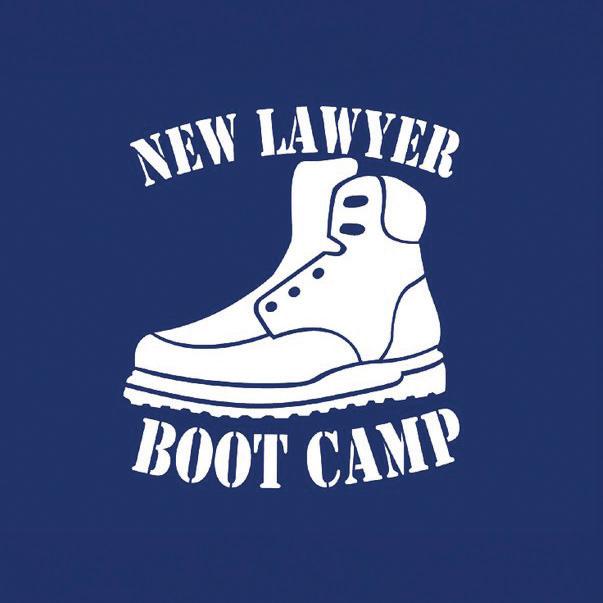
On May 3, the OCBA, Oakland County Circuit Court, and Oakland County Probate Court jointly sponsored a dynamic, intensive fullday training program tailored for attorneys who have been practicing for less than five years and law students. Over 90 participants learned from judges, judicial staff, and expert attorneys about navigating the court system and effectively representing clients. The practical, comprehensive sessions helped new attorneys develop into professional, confident, and successful practitioners in Oakland County and beyond.




On May 18, 10 OCBA members participated in a joint Lawyer Well-Being and Medical/Legal Committee walk. Attendees enjoyed an hourlong brisk walk surrounded by
nature at Rochester Municipal Park. After the walk, the group gathered at Kruse’s Paint Creek Tavern for lunch.
Oakland County senior citizens attended Senior Law Day, sponsored by the Providing Access to Legal Services (PALS) Committee of the OCBA, on May 7 at the Costick Center in Farmington Hills or on June 7 at the Waterford Senior Center. ese programs offer an invaluable resource in which OCBA volunteer lawyer members help to educate senior citizens on the areas of law that impact them. anks to the generous support of the Oakland County Bar Foundation, there is no cost for seniors to attend these events. Participants attended several informational sessions on powers of attorney, estate planning, and Medicaid. ere was also an “Ask a Lawyer” session where attendees were able to speak with an attorney individually.


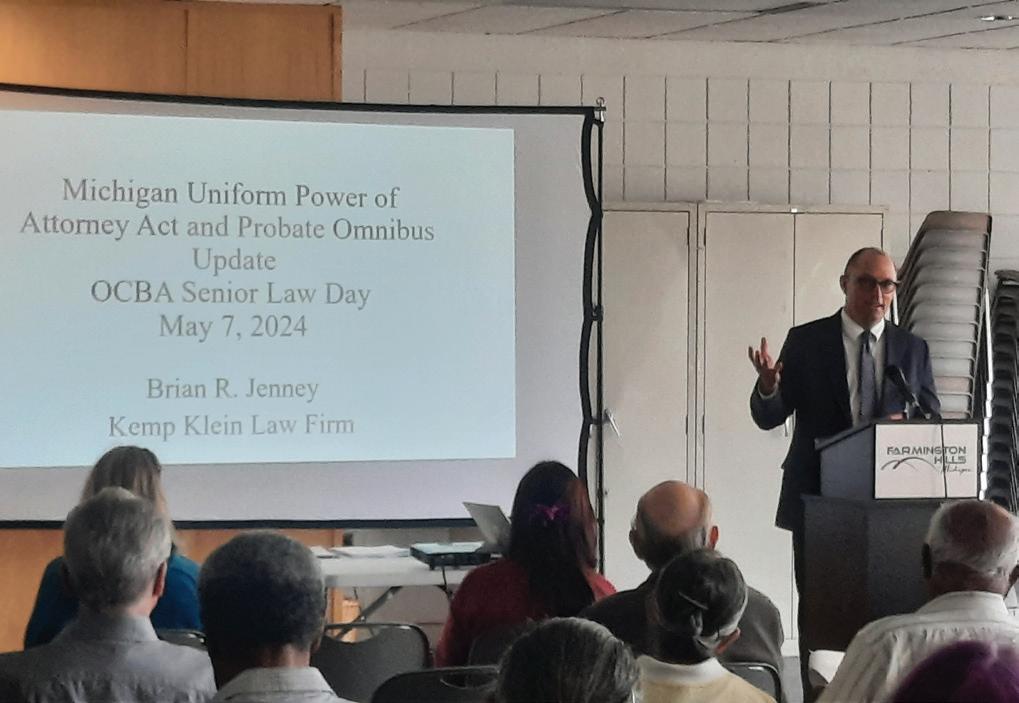





On April 10, the LOCA Committee hosted Barbara McQuade, an MSNBC commentator, University of Michigan Law School professor, author, and former U.S. attorney. McQuade discussed her book, Attack from Within: How Disinformation Is Sabotaging America, and addressed other current political and media issues. Her book examines the increasing polarization of American society, highlighting how it is being strategically driven by the deliberate spread of disinformation — lies masquerading as truth.

By Jeffrey G. Raphelson

In the coming months, I look forward to telling you about the many great organizations your Oakland County Bar Foundation funds and the good work it makes possible. But for my first column as OCBF president, I am honored to reflect on the foundation’s history of strong leadership and how well your foundation has fared in a challenging environment for charitable organizations.
e COVID-19 pandemic brought out the best in U.S. charitable giving, setting records in 2020 and 2021. Total U.S. charitable giving (donations by individuals, bequests, foundations, and corporations) in 2021 reached $516.65 billion, surpassing $500 billion for the first time. However, in 2022, it declined to $499.33 billion, which, when adjusted for inflation, represented a 10.5% decrease.1 In the prior 40 years, total charitable giving had declined only three times, in 1987, 2008, and 2009,2 all years with significant economic downturns. Giving by individuals (such as the foundation’s Fellows) fell in 2022 by 13.4% (adjusted for inflation).3
America’s waning charity was not limited to its pocketbooks. In December 2023, e Washington Post noted a “slow but steady drop [in volunteerism] for the past 13 years.”4
A nationwide Gallup survey of 811 adults conducted in December 2021 found that the respondents who reported volunteering their time fell to 56% in 2021, continuing a decline from prior years (65% in 2013 to 64% in 2017 and to 58% in 2020).5
e OCBF depends on financial contributions and volunteer efforts to serve its mission of (a) improving access to and administration of justice, (b) promoting legal education and scholarship, (c) instructing the public on its legal rights and obligations, and (d) fostering the honor and integrity of the legal profession. Your foundation’s officers and trustees are all volunteers with full-time jobs as lawyers or professionals supporting the practice of law. Since the onset of COVID-19, the foundation
has maintained a full roster of trustees, aided by an impressive group of emeritus trustees. e foundation’s financial performance has also been steady. As of this writing (nine months into the OCBF fiscal year), total income is up 32% over the same period in the 2022-23 fiscal year (which was up 22% over the same period in the 2021-22 fiscal year).6 Expenses have been relatively flat over these periods, and net income has risen solidly. e 2024 Signature Event, our major fundraising effort each year, saw an increase in total revenue ($193,535) over the 2023 event ($189,780). is stable financial performance enabled the OCBF to remain consistent in its grant making. In 2021-22, the OCBF budgeted $140,000 for grants. It gave that entire amount and tapped into additional resources to give a total of $172,900 to some very worthy groups. In 2022-23, the OCBF
budgeted more than $155,000 and gave a total of $158,479. is year, your foundation has awarded or recommended grants exceeding $162,500.
None of this would have been possible without excellent leadership and administrative support. e foundation benefits from its partnership with the Oakland County Bar Association, which handles the OCBF accounts and records; arranges and staffs every meeting, reception, or other event; and provides indispensable guidance based on a longer history with the OCBF than any one of its officers has. We cannot overstate the value of Jennifer Quick and Katie Tillinger to your foundation.
Finally, we must give outgoing President Mike Turco his due. Despite the demands of his commercial, construction, and IT litigation practice, Mike led the OCBF through significant obstacles to another successful

2023-24 OCBF President Mike Turco fly-fishing.

year, building upon the progress made in prior years. And he did it with patience, accountability, and creativity. Mike took on the hard tasks and claimed responsibility for the few disappointments we experienced this year. He backstopped those working on the OCBF’s behalf. He was hands-on but with intelligence and modesty. Sure, the OCBF Casino Night never made it out of committee, but that proposal shows how creative Mike was when trying to expand the foundation’s ability to serve our community. Mike
set the bar very high.
While the OCBF will value Mike’s continued work on the executive board as past president, I hope he steps back enough for more time with his wife, Monique, and their daughters, and to pursue his personal interests, like fly-fishing, for the peace it inevitably brings. Former Michigan Supreme Court Justice John D. Voelker, writing under the pen name Robert Traver, said, “I fish because I love to; because I love the environs where trout are found, which are invariably beautiful.”
When my term as president is done, I hope to meet Mike on the “Holy Waters” of Michigan’s Au Sable River to fish and talk with some pride about the foundation’s good work.
ank you, and I am counting on your help this year.

Je rey G. Raphelson is the president of the Oakland County Bar Foundation.
Footnotes:
1. See Giving USA 2023: The Annual Report on Philanthropy for the Year 2022, a publication of Giving USA Foundation, 2023, researched and written by the Indiana University Lilly Family School of Philanthropy. Available online at givingusa.org
2. Id.
3. Id. The Indiana University Lilly Family School of Philanthropy’s Giving USA report for 2021 reported that total giving in 2020 of $471 billion (a record at the time) came despite a drop in the number of U.S. households contributing to charitable nonprofits, dipping below 50% for the first time in 20 years. Van Steenberg, et al., “The New World of Philanthropy: How Changing Financial Behavior, Public Policies, and COVID-19 Affect Nonprofit Fundraising and Marketing,” The Journal of Consumer Affairs (Wiley, June 6, 2022).
4. Joe Heim, “Nonprofits Need More Help Than Ever. Why Aren’t Americans Volunteering?,” The Washington Post, December 9, 2023.
5. Matt Sinclair, “Nonprofits, Foundations Adjust to the Post-Pandemic Era,” Philanthropy News Digest, March 30, 2023.
6. These partial-year figures are subject to adjustment and review by the OCBF’s CPA firm.




O u r d i s t i n g u i s h e d t e a m i n c l u d e s 9 M A I s a n d
1 6 C e r t i f i e d G e n e r a l R e a l E s t a t e a p p r a i s e r s , e a c h b r i n g i n g d e e p
s p e c i a l i z a t i o n i n a w i d e a r r a y o f p r o p e r t y t y p e s F r o m a p a r t m e n t s a n d s e n i o r h o u s i n g t o i n d u s t r i a l b u i l d i n g s a n d s h o p p i n g c e n t e r s , o u r
e x p e r t s d e l i v e r p r e c i s e a n d d e f e n s i b l e v a l u a t i o n s c r i t i c a l i n l e g a l
d i s p u t e s , e s p e c i a l l y i n d i v o r c e c a s e s
L O C A L K N O W L E D G E , N A T I O N W I D E R E A C H
W i t h M i c h i g a n o f f i c e s i n D e t r o i t a n d G r a n d R a p i d s w e o f f e r u n p a r a l l e l e d l o c a l m a r k e t i n s i g h t s W e a l s o h a v e o f f i c e s i n m o s t o t h e r
s t a t e s , w i t h t h e c a p a b i l i t y t o h a n d l e m u l t i - s t a t e p o r t f o l i o
a s s i g n m e n t s O u r a c c e s s t o e x c e p t i o n a l r e a l e s t a t e d a t a a n d a n a l y t i c s
s u p p o r t s t h e d e v e l o p m e n t o f w i n n i n g l i t i g a t i o n s t r a t e g i e s , t a i l o r e d t o
t h e n u a n c e s o f e a c h c a s e
C H O O S E I R R - D E T R O I T F O R U N M A T C H E D R E A L E S T A T E E X P E R T I S E







P a r t n e r w i t h I R R - D e t r o i t f o r y o u r l i t i g a t i o n n e e d s O u r c o m p r e h e n s i v e s e r v i c e s f r o m d e t a i l e d v a l u a t i o n s t o e x p e r t t e s t i m o n y a r e t a i l o r e d t o
s u p p o r t l e g a l p r o f e s s i o n a l s
F o r c o n s u l t a t i o n s a n d t o e x p l o r e o u r L i t i g a t i o n a n d E x p

Lewis & Dickstein, P.L.L.C., is thrilled to announce the latest additions to its esteemed Oakland County criminal defense team, Jessica Hollan and Nicolas “Nic” Monarrez

Hollan brings with her a wealth of experience from her two-year clerkship at the 52-3 District Court in Rochester Hills. She earned her Bachelor of Criminal Justice in forensic psychology from Tiffin University in 2019 and her Juris Doctor from the Michigan State University College of Law in 2022. While in law school, Hollan interned at the Victoria County District Attorney’s Office, worked as a law clerk at Legal Services of South Central Michigan, served as editor and researcher at the Citing Slavery Project, and was editor-in-chief of the Animal and Natural Resource Law Review at the MSU College of Law. Hollan’s research and writing skills have been showcased in multiple legal publications and written opinions.

Monarrez joins the firm following a successful tenure at a prominent law firm in Oakland County and extensive practice in criminal defense in Arizona. Monarrez earned his Juris Doctor from Arizona State University’s Sandra Day O’Connor College of Law and a bachelor’s degree in governmental studies with an emphasis in legal studies from Grand Canyon University in Phoenix. Monarrez was a board member of the Student Bar Association and Chicano/Latino Law Student Association during law school. While in law school, Monarrez gained valuable experience in criminal law through his involvement with the Post-Conviction Clinic. This early exposure to cases and clients helped Monarrez to develop a client-facing approach to his work and gain experience with criminal appeals.

The Gucciardo Law Firm, PLLC, is pleased to announce that attorney Ronald W. Tolbert II has been named a partner in the firm. Tolbert is a highly respected attorney who focuses on divorce and family law matters in Oakland and surrounding counties.
In his 10 years with the firm, Tolbert has been highly active in complex divorce and custody litigation. He counsels clients based upon the facts and circumstances in their individual cases and develops legal strategies that have proved successful in the courtroom and when negotiating settlements.
Tolbert is a graduate of Wayne State University and Thomas M. Cooley Law School.



Williams Williams Rattner & Plunkett is pleased to announce that shareholder Jerome Pesick has been admitted to the prestigious American College of Real Estate Lawyers (ACREL). ACREL is the preeminent association of commercial real estate lawyers in the United States, focused on service to clients, colleagues, and the profession.
Nominees for consideration by ACREL must:
• Be a distinguished real property law practitioner, well known as a specialist in real estate law or a subspecialty of real estate practice.
• Have had substantial experience in real estate law or a real estate subspecialty for at least 10 years.
• Have devoted substantial time and effort to contributing to a more informed bar or public with respect to matters of real estate law, in satisfaction of the college’s “giveback” requirement.
• Enjoy an outstanding reputation for excellence and integrity.
Pesick’s entire legal career has focused on commercial real estate, with specialties in eminent domain and condemnation law and land use. Pesick also actively represents clients in the commercial property tax appeals process, regularly appearing before the Michigan Tax Tribunal. Among his many milestone achievements, Pesick served as lead counsel on what remains the largest eminent domain verdict in Michigan history — rendering $25 million in a case that involved a 6.3-acre parcel on the Detroit River with an original government offer of $13.7 million.

Pesick has successfully represented clients in many high-profile eminent domain and condemnation projects, including the Gordie Howe International Bridge, Comerica Park and Ford Field, Poletown, I-696, and Detroit Metropolitan Airport expansion, just to name a few.
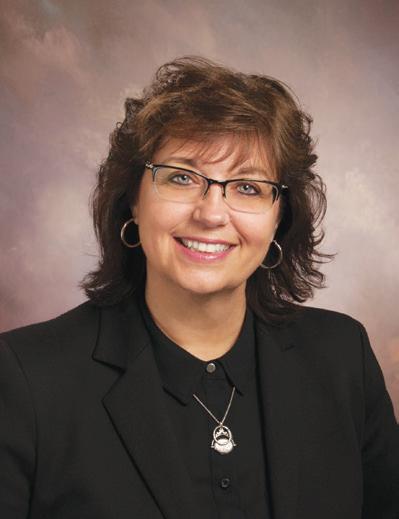

On November 7, 2023, the Uniform Power of Attorney Act (UPOAA) was signed into law, and it took effect on July 1, 2024. e UPOAA is a model statute developed by the Uniform Law Commission in 2006. To date, a version of the UPOAA has been enacted in 31 states.
Although the provisions of the Estates and Protected Individuals Code that formerly governed durable powers of attorney in Michigan have been repealed by the new act, the UPOAA does not invalidate powers of attorney executed before the UPOAA’s enactment, as long as those powers were executed in accordance with Michigan’s statutory requirements at the time the power was enacted.
A power of attorney (POA) is a document that allows an individual (the principal) to designate another (the agent) to act on their behalf. e agent may be given broad or limited authority to make decisions. e UPOAA is far more detailed than the prior Michigan law for POAs. e new law was designed to provide for increased accessibility, effectiveness, and standardization.
A POA may be effective immediately or effective at some point in the future, depending on its construction. If the POA is immediately effective, it becomes effective when executed. A “springing” POA springs to life only after the occurrence of a certain event — such as a doctor declaring that the individual is incapacitated. e act outlines the duties of an agent to act in accordance with the reasonable expectations of the principal and requires the agent to follow a specific set of mandates, which include acting in good faith, in the best interests of the principal, and within the authority granted in the POA. e agent is also required to keep reasonable records of receipts, disbursements, and transactions made by the agent on behalf of the principal.
e UPOAA provides a series of default rules for POAs, including how a durable POA is created. If the POA is executed in accordance with the act, it is durable. ere is no longer the
By Barbara P. Andruccioli
requirement that a POA must explicitly state it is durable. is is a change from the prior law, which required an affirmative statement as to the POA’s durability. A POA is durable if it (a) is acknowledged by the principal before a notary public or other individual authorized to take acknowledgments or (b) is signed in the presence of two witnesses, both of whom must sign the POA. Neither witness may be the nominated agent, but one of the witnesses can also be a notary.
If the POA is not executed in accordance with the act, it may be effective, just not durable. To be effective, the POA must be signed by the principal or by an individual directed by the principal to sign for them in their presence. is option gives the principal the ability to create a POA, although not durable, even if they don’t have access to witnesses or a notary.
e UPOAA promotes the uniform acceptance of acknowledged POAs by protecting third parties who accept a notarized POA in good faith, such as financial institutions and health care providers. A third party’s legal department will no longer be permitted to arbitrarily refuse a validly executed POA. Sanction provisions are contained in the statute for those who refuse to accept an acknowledged POA. A third party can request a certification or opinion of counsel as to the validity of the POA, which must be completed within seven days of receiving the document.
“A perfect summer day is when the sun is shining, the breeze is blowing, the birds are singing, and the lawn mower is broken.”
—James Dent
e UPOAA also offers more protection for agents. An agent who acts in the principal’s best interest using care, competence, and diligence would not be held liable under the UPOAA, even if the agent also receives a bene-
fit from their efforts.
e rules for an agent’s liability for an abuse of power are more specific than those under previous Michigan law. An agent whose actions violate the UPOAA would be liable to the principal for the amount required to restore the value of the principal’s property to what it would have been had the violation not occurred, including reimbursement of attorney fees and costs. If an agent embezzled, wrongfully converted the principal’s property, or refused to transfer possession of the principal’s property to the principal on demand, they are liable for three times the value of the property.
e UPOAA specifically details an agent’s general authority over the real and tangible personal property of the principal. It also details the agent’s limitations, unless expressly granted in the POA or by judicial order. An agent is prohibited from making any changes to a living trust, making gifts, altering rights of survivorship, creating or changing a beneficiary designation, delegating authority granted by the power of attorney, waiving the principal’s right to be a beneficiary of joint and survivor entitlements, exercising fiduciary powers that the principal has authority to delegate, controlling the principal’s electronic communications, or exercising authority over any financial accounts in a foreign country.
A POA is terminated if (1) the principal dies, (2) the POA is not durable and the principal becomes incapacitated, (3) the principal revokes the POA or the agent’s authority, or (4) the termination is pursuant to the terms of the POA.
e UPOAA contains statutory power of attorney and agent’s acknowledgment forms to help make POAs more accessible to Michiganders. It should be noted that the statutory POA form does not qualify as a patient advocate designation, health care advanced directive, or delegation of power by parent or guardian.

Barbara P. Andruccioli is the Oakland County Probate Court register.
Visiting -
VisitingAlexander
VisitingPotts
VisitingRonayne
2023-284616-FC People v. Roberts
2023-283281-FC People v. Hopkins
2022-197680-NI
Daytavion Holcomb v. Victoria Cummins
2023-286778-FC People v. Horton
2022-196673-NI
Sabah Habash v. State Farm Mutual Auto Ins. Co.
2023-285235-FH People v. Banks
2023-283366-FC People v. Morshed
2023-286193-FH People v. Jones
2023-286877-FH People v. Grimes
2021-277894-FC People v. Birkelbaw
2022-196137-NI
Kathleen Dib v. Kay Wilkerson
2024-287764-FH People v. Perkins
2022-196328-NO
Derrick Easley v. Leslie Misher
2022-196823-CZ Fortress Foundations v. Mayday Construction
Andrew McGarrow
Cecilia Quirindongo
Baunsoe
Christian Arndt
Victor Mansour
Robert Lantzy
Mark Richard
Andrew Duff
James King
Koro Khamo
Paul Gipson
Qamar Enayah
Richard Taylor
Dillon Salge
Arnold Weiner
David Champine Scott Kozak
David Hutson Irene Wassel
Jason Desantis
Judith Gracey
Albert Dib, Leanne Pregizer
Stephen Baylerian, Ibrahim Barlaskar
Nicole Garmo
Solomon Idumesaro
Brandon Wolfe
Christina Pawlowski
Cindy Rhodes Victor Gary Quesada
Armed Robbery
Aslt. w/I to Murder, Aslt. w/I GBH, Felon Poss. Firearm
Personal Injury/Auto Negligence
2023-283281-FC People v. Hopkins
Christian Arndt
Victor Mansour
Personal Injury/Auto Negligence
2 Cts. Aslt. w/I GBH, Aslt. w/Dang. Weap., Poss. FA in
Carrying a Concealed
Personal Injury/Auto Negligence
CSC 1st Deg., CSC 2nd Deg., Child Abuse 3rd Deg., DV Other Personal Injury
5/30/2024
5/2/2024
5/9/2024
5/13/2024
Cohen
Cunningham
Cunningham
Grant
2021-186350-NH Oluebubechukwu
Umeokolo v. Henry Ford
2023-286475-FH
People v. Clark-Sneed
2023-285087-FH
People v. Poberezhnyuk
2023-284941-FC
People v. Bisbikis*
5/13/2024
5/28/2024
5/14/2024
4/29/2024
5/28/2024
5/28/2024
5/6/2024
Grant
2023-284940-FC
People v. Larry*
Albert Dib
Barbara Martin
Rosston Ramsey
Jan Jeffrey Rubinstein
Rosston Ramsey
Judith Gracey
J. Skrzynski, R. Polanco, B. Barlog
James Thomas, Michael Naughton
J. Skrzynski, R. Polanco, B. Barlog
Mitchell Ribitwer
Assault w/Dang. Weapon
Homicide 1st Deg. - Premed., Weap. FF, Consp. to Murder, AWIM, Weap. FF
Homicide 1st Deg. - Premed., Weap. FF, Consp. to Murder, AWIM, Weap. FF
5/21/2024
Matis
Matthews
O'Brien
Grant O'Brien
Poles
2023-287040-FH
People v. Withers
2021-188970-NH
Patricia Stoll v. Brady Vibert
2023-286778-FC
People v. Horton
2023-287328-FH
People v. Knight*
2023-286611-FH
People v. Knight*
2022-194881-NF
Ask Healthcare Services Inc. v. Homeowners Ins. Co.
Poles
2023-287074-FH
People v. Williams
Kristie Sparks
Gregory Mortimore
Steven Hubris, Ariel
Kellersohn
Cullen McKinney
Andrew Duff
James King
Andrew Duff
John Secrest
Andrew Duff
John Secrest
L. Andreopoulos, D. Hill, J. Marko
M. McDonald, G. Guibord, A. Blessing
Qamar Enayah
Ivan Land
Malpractice
Assault w/Intent to Murder
Comp./Using to Comm. Crime, Captur. Image of Unclothed Person
Captur./Distrib. Image of Unclothed Person
No-Fault Automobile Insurance
Sarah Greene
Michael McCarthy
Donald Bachand
Maureen Rouse-Ayoub
2023-285630-FH
Andrea Ajlouni
Kiana Franulic




















Iwant you to consider your relationship with the jury system for a moment. Odds are high that if you are reading this article, you are an attorney, perhaps an attorney involved in litigation. If you fall within this latter group, you clearly have a distinct, strong tie to the jury system. Even if you do not litigate cases, you professionally associate with others reliant upon the jury system.
For the moment, I wish to dig a bit deeper. What is your personal relationship with the jury system? Have you received a jury summons? Have you served on a jury? Did you attempt to get out of jury duty, perhaps because you are a lawyer and believe that no one would keep you on a panel, or that your schedule does not permit you to engage in such foolishness, or that jury duty is for other people, as you already devote your time and energy as a lawyer to the pursuit of justice? Whatever the reason, did you attempt to dodge jury duty? Did you simply ignore your jury summons, or did you respond and, to the extent required, serve?
As I scribble this article, I have a notice from the Oakland County Jury Commission on my desk directing me to complete a jury questionnaire, as well as my notes indicating when I completed the survey. is means that I have entered the pool for selection to my local district court. For now, I wait to see if I will receive a summons to report for jury duty. To paraphrase Marlon Brando’s character, Vito Corleone, in e Godfather, the Jury Commis-
By Richard Lynch
sion has told me, “Someday, and that day may never come, I will call upon you to serve on a jury.”
Why am I blathering on about jury duty today? Even casual readers of this publication have seen the monthly Jury Trials and Utilization report. Clearly, many of our fellow citizens have given of themselves to ensure that our jury system works. In the last year, five judges received summonses for jury duty in the Sixth Circuit, with four being required to report. While none were seated during this period, we have had judges serve on juries here. So, if others ensure that the system works, the question returns: Why am I writing about this?
Let’s begin with the basics. Who may serve as a juror? You must be a United States citizen who is at least 18 years old and resides in the county and, as appropriate, district for which you are selected.1 You must possess the ability to communicate in English and be physically and mentally able to perform the duties of a juror.2 You must not have served as a juror in a court of record in the last 12 months and must not have a felony conviction.3 e Sixth Circuit Court’s Jury Office and the Oakland County Jury Commission work with individuals summoned for service in the circuit and probate courts or the district courts, respectively, to ensure that those ineligible to serve are not required to report.4
e Sixth Circuit Court works diligently to make jury duty as accessible and unintrusive
as possible in the lives of those summoned while ensuring a qualified pool of venirepersons for cases set for the one day that summoned jurors serve. We have all heard of and perhaps even participated in trials that have lasted for weeks, if not months. In the Sixth Circuit, the average criminal trial lasts three days. e average civil trial lasts four days. As I write this, I have the May 2024 LACHES issue before me opened to the February Jury Trials and Utilization report. e published results confirm this average. Even unique cases generally adhere to this model. For example, consider the James and Jennifer Crumbley trials, which lasted four and seven days respectively. Simply put, while our time is very valuable, the time required to serve on a jury is not a tremendous imposition.
If it is not the time required to serve on a jury that poses a problem, what are the obstacles? A recent study by the National Center for State Courts5 (NCSC) reached out to individuals who did respond to a jury summons and/or failed to report to jury duty. For those who responded to the survey, common challenges included poor health, employer hostility toward jury duty, transportation issues, and child care. Equally important in the NCSC study was the number of summonses that did not reach the individual. Five percent of summonses were returned undeliverable.6
For those who received summonses, two challenges loomed large. Prospective jurors were unavailable to serve on the scheduled date, and
While it seems that no time is convenient to serve as a juror, the Jury Office is prepared to work with prospective jurors to limit the level of inconvenience. So, if the date for which you are summoned proves challenging, work with the Jury Office to reschedule rather than ignoring the date.
they were unaware of an option to reschedule.7 e Sixth Circuit’s Jury Office webpage seeks to clarify this challenge as follows:
“Jurors may be allowed one deferral of their jury service. To request a deferral, you may access the automated system by calling 248-294-1063 and following the prompts. You will need your ten-digit candidate number; which is located in the upper right hand corner of your summons. You may defer for up to three months. Only Monday, Tuesday, or ursday dates may be selected. If there are extenuating circumstances and you will not be available for a longer period, you must call the above number and speak directly to a clerk. You may also make a request accessing the online questionnaire by using the Internet Explorer as the Web browser at www.oakgov.com/jury.”8
While it seems that no time is convenient to serve as a juror, the Jury Office is prepared to
work with prospective jurors to limit the level of inconvenience. So, if the date for which you are summoned proves challenging, work with the Jury Office to reschedule rather than ignoring the date.
Jury duty may rank up there with certain necessary medical procedures on your list of preferred obligations to avoid, and for some of us, exemptions from service are possible. For example, Michigan offers citizens several exemptions from jury duty. ey include that those more than 70 years old may claim a jury exemption upon request, nursing mothers may claim an exemption, participants in the address confidentiality program may claim an exemption, and individuals on active duty for the United States armed forces or who are the spouse of an individual stationed outside of Michigan may claim an exemption.9 If you have a question regarding service or eligibility to serve or a qualifying exemption, reach out to the Jury Office. Its staff looks forward to serving you, and I hope that you will enjoy your service.

Richard Lynch is the court administrator for the Oakland County Circuit Court.
Footnotes:
1. MCL 600.1307a(1)(a).
2. MCL 600.1307a(1)(b) and (c).
3. MCL 600.1307a(1)(d) and (e).
4. oakgov.com/government/courts/circuit-court/civilcriminal/jury-service, last accessed June 3, 2024.
5. Why Won’t They Come? A Study of Juror Nonresponse and Failure-to-Appear in Harris County, Texas, December 2023, p 6.
6. Id., p 7.
7. Id., p 7.
8. oakgov.com/government/courts/circuit-court/civilcriminal/jury-service, last accessed June 3, 2024.
9. MCL 600.1307a(2)-(6).

Executive Director


Jumana Judeh, PhD, MAI, CCIM
Office: 313-277-1986
Mobile: 313-801-2603
Email: JumanaJ@JudehOnLine.com
Rosanna Ameriguian
Christopher A. Grosman
Alexandra Hand
Heaven Horn
Bailey Kadian
Victoria Kass
Rebecca Klein
Kevin T. Mackin
Dandridge Floyd
Kathryn Gasior
Vincent D. Giovanni
Andrew C. Goetz
Nicholas P. Goodenow
Jessica Hollan
Yohana Iyob
Lisa Jefferies
Richard Linnell
Jason C. Long
Joshua D. Marcum

Zahara Jane Madahah
Joseph Russell McDonnell
Michael Peris
Joanne E. Pray
David E. Schlackman
Elizabeth Sherowski
Samantha Torongeau
Joshua J. Miller
Kayla D. Miller
Nicholas J. Monarrez
Alison Pahlkotter
Elena Paraskevas-Thadani
Kallye Pinkerton
Savanna M. Polimeni
Robin Rogers
Mahmoud Talab
Hunter R. Wiand
Jennifer Quick (jquick@ocba.org)
Deputy Director of Membership and Foundation
Katie Tillinger (ktillinger@ocba.org)
Finance Director
Susan Maczko (smaczko@ocba.org)
Professional Development Director
Shanay Cuthrell (scuthrell@ocba.org)
Marketing Communications Specialist
MB Cairns (mcairns@ocba.org)
District Court Case Evaluation Administrator
Kari Ross (kross@ocba.org)
Bookkeeper
Mayly McRae (mmcrae@ocba.org)
Public Services Administrator
Janise Thies (jthies@ocba.org)
Front Desk Administrator Geni Fritch (reception@ocba.org)
Administrative Assistant
Lori Dec (ldec@ocba.org)
Unless otherwise indicated, please call (248) 334-3400 for assistance.
Address Changes
Billing
Board of Directors
Case Evaluator Applications
Committees
Mayly McRae
Susan Maczko
Jennifer Quick
Kari Ross
Katie Tillinger
District Court Case Evaluation ........................................... Kari Ross
Event Photos ...................................................................
Finance
Inns of Court
Judicial Candidate Fora
Laches Magazine
Lawyer Referral Service – (248) 338-2100
Member Illness & Death Notification
New Lawyer Admissions
Oakland County Bar Foundation
OCBA Policies
Pro Bono Mentor Match Program
Professional Development/CLE
Room Rental Reservations
MB Cairns
Susan Maczko
Shanay Cuthrell
Janise Thies
Jennifer Quick
Janise Thies








Continued from page 32
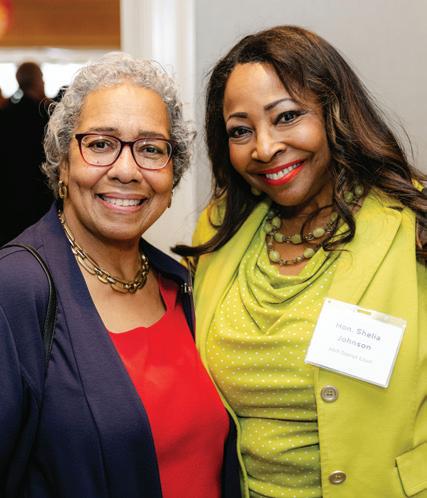
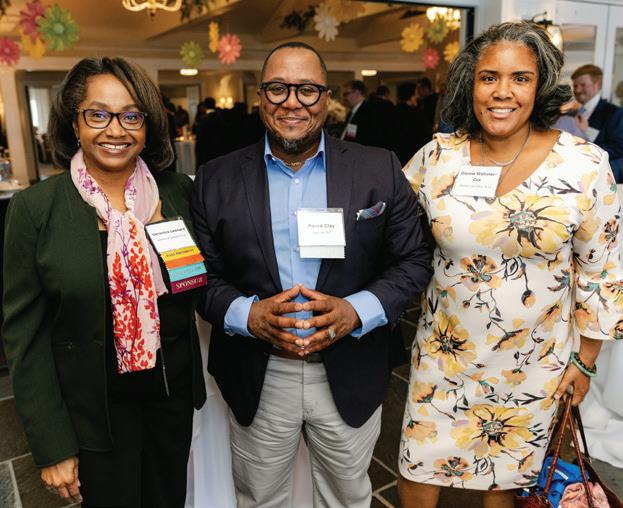












Oakland County Bar Foundation’s 25th Annual Signature Event
Orchard Lake Country Club | ursday, May 9, 2024
